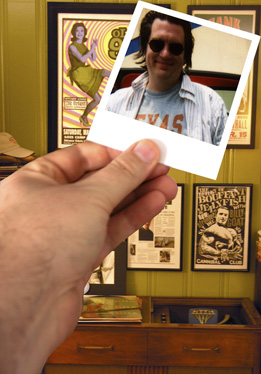 Is the interview as we know it dead?
Is the interview as we know it dead?
That’s what The Washington Post’s Howard Kurtz is asking.
It is a transaction that clearly favors the person asking the questions. A print reporter writes down someone's answers, then picks and chooses how much, if any, to use, how to frame the quotes and where to put any contrary information. Television correspondents slice and dice taped interviews in similar fashion. But in the digital age, some executives and commentators are saying they will respond only by e-mail, which allows them to post the entire exchange if they feel they have been misrepresented, truncated or otherwise disrespected. And some go further, saying, You want to know what I think? Read my blog.
Kurtz’s point is the balance of power between reporter and subject has shifted. Kurtz quotes Jason Calcanis, chief executive of Weblogs Inc., on his blog saying that "journalists have been burning subjects for so long with paraphrased quotes, half quotes, and misquotes that I think a lot of folks (especially ones who don't need the press) are taking an email only interview policy."
Now, when a story breaks claiming that Curt Schilling’s bloody sock from the 2004 ALCS was actually red paint, Schilling responds on his personal blog.
So, what? Is it a bad thing that individuals have more channels to express a point of view? No. Certainly e-mail exchanges allow for more thoughtful answers and are much more time efficient. But, as Kurtz points out, there is nuance lost in a digital interview, and it is much easier to self-edit -- which is why interview subjects love it. If our president could conduct all of his interviews by e-mail, he could look positively Churchill-esque. Instead, anyone who has watched a televised news conference with him realizes that when he strays too far from his talking points, he is completely out of his depth. That’s what you can lose with an e-mail interview -- what you get may be less insightful and more like a press release. If we expect journalists to be government watchdogs, that’s not a good thing. But reporters are going to need to find a way to deal with it -- and make it work for them.
And this actually is a nice segue into my other point, Newsweek’s Robert Samuelson had an interesting take on “The News Business.” He points out what journalists hate to think about: news is a business, but the people who gather the news see it as a craft, a calling, a profession. What pisses off journalists the most is “lost autonomy and power. We're angry that, like everyone else, we're subject to business and financial pressures. Editorial independence has subtly eroded. Decisions about what topics to cover (health, technology) are increasingly tailored to appeal to advertisers. Splintering media markets have weakened the economic base for newsgathering.”
So Big Media aren’t the only game in town anymore, does that mean they are dinosaurs headed to extinction. As Samuelson points out, the skills that are rewarded are shifting from diligent, curious and clear, to tech-savvy, quick and edgy. But Big Media orgs are in the best position to provide both depth AND immediacy. Case in point: Unfair Park. The Observer does a great job of using this vehicle to be timely and snarky, but they use it as an entry point for great in-depth reporting. Sure, the Startlegram and the D(a)MN have loads of local blogs, but none do the job as well as this one. THAT is the challenge that Big Media faces -- things are changing, deal with it.

No comments:
Post a Comment